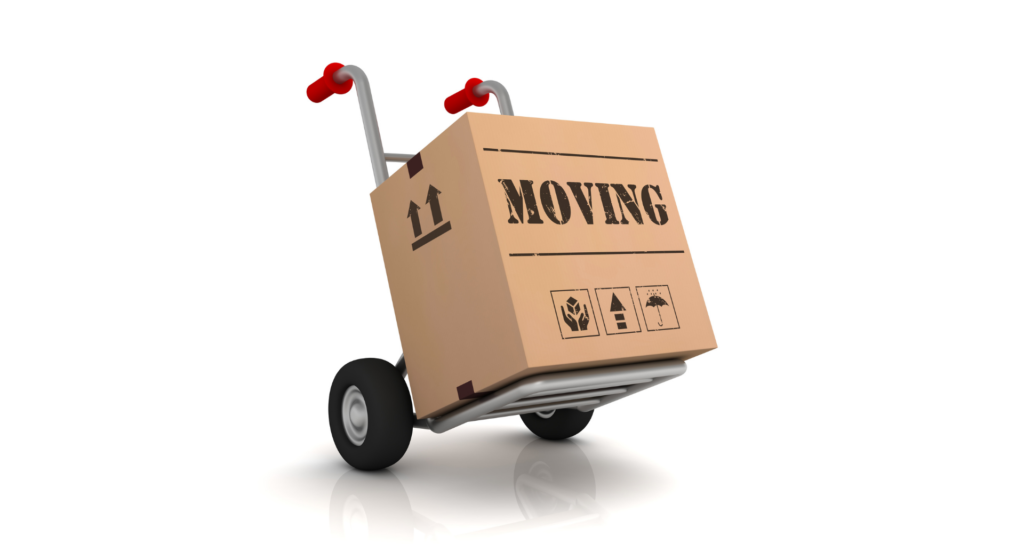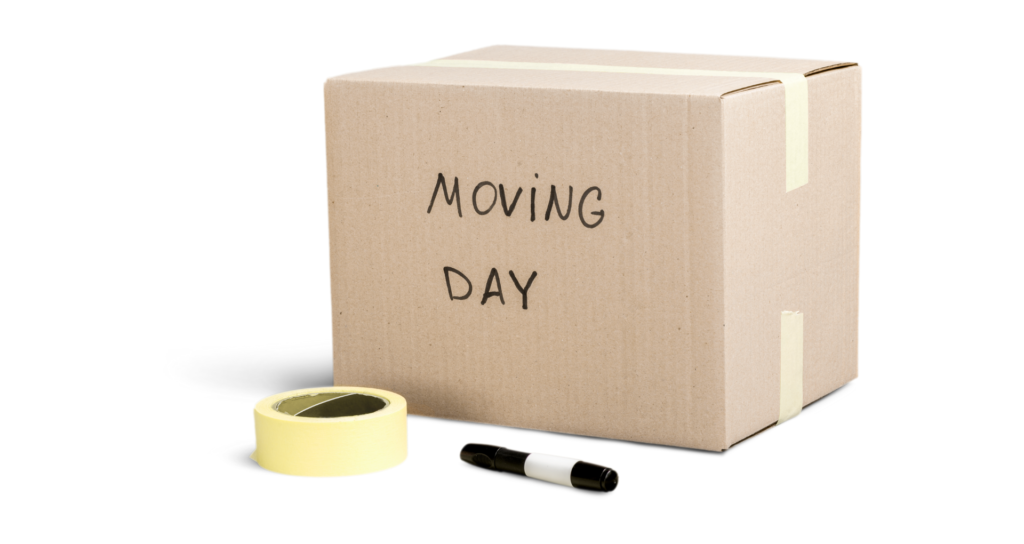Importance of Choosing the Right Moving Company
Relocating to a new home is an exciting chapter in life, but the process of moving can often feel overwhelming. One of the most critical decisions you’ll make during this transition is selecting the right moving company. The quality and professionalism of the movers you choose can significantly impact your experience, transforming what could be a stressful ordeal into a smooth and seamless journey.

The right moving company doesn’t just transport your belongings—they become your partner in ensuring that everything you’ve worked hard to acquire arrives at your new destination safely and efficiently. From packing fragile items to navigating logistical challenges, a reliable mover provides peace of mind, allowing you to focus on settling into your new space.
On the other hand, choosing an unreliable or unprofessional moving company can lead to a host of problems. Damaged or lost items, unexpected fees, and poor communication are just a few of the risks you may encounter. Worse still, falling victim to a moving scam can result in financial loss and emotional frustration.
This guide is designed to help you avoid such pitfalls. By following a step-by-step process, you’ll learn how to research companies, verify credentials, evaluate customer service, and identify warning signs. Equipped with this knowledge, you’ll be well-prepared to make an informed decision that ensures a positive moving experience.
Navigating Your Move
Navigating the moving industry can feel like an intimidating task, especially with so many companies vying for your attention. This guide simplifies the process by breaking it down into manageable steps, empowering you to confidently select the best moving company for your needs.
Here’s what you can expect:
- Research: Learn how to create a shortlist of reputable movers using online reviews, professional accreditations, and proven track records(Check our list of reputable movers).
- Verify Credentials: Understand the importance of licenses, insurance, and other legal requirements to ensure the movers meet industry standards.
- Compare Quotes: Discover how to request and evaluate estimates for fair pricing and transparency.
- Understand Services: Explore the range of services offered by moving companies, from packing to storage, and how to match them to your needs (Click here to match your company).
- Ask Key Questions: Prepare a list of essential questions to ask potential movers, covering safety measures, employee policies, and dispute resolution.
- Identify Red Flags: Learn to spot warning signs of unreliable companies, such as vague estimates or demands for large upfront payments.
- Evaluate Customer Support: Recognize the hallmarks of excellent customer service and why it matters throughout the moving process (See Our Companies Review).
- Read the Contract Carefully: Get tips on reviewing contracts to ensure all terms are clear and favorable.
- Book Early: Find out why securing your moving date well in advance can save you money and stress.
By the end of this guide, you’ll have all the tools you need to choose a moving company that aligns with your expectations and ensures a hassle-free relocation experience. Let’s get started!
Start With Research
The process of selecting a reliable moving company begins with thorough research. With countless options available, ranging from local operators to large-scale national movers, finding the right one can feel overwhelming. However, dedicating time to research is essential for making an informed decision that ensures a stress-free moving experience. This section will guide you through the steps to compile a list of moving companies, assess their reputations, and identify those that meet your specific needs. Check-out Ace Interstate moving’s top-rated moving companies list.
Why Research Matters
When it comes to moving companies, not all are created equal. Some excel in providing top-tier service, while others may cut corners, resulting in delays, damage, or even scams. Research helps you distinguish between reliable professionals and less reputable operators.
The moving industry also varies widely in terms of pricing, services, and expertise. Without proper research, you risk overpaying for subpar services or entrusting your belongings to a company ill-equipped to handle them. By thoroughly vetting your options, you can feel confident that your chosen mover is up to the task, ensuring peace of mind throughout the relocation process.
How to Compile a List of Moving Companies
Creating a comprehensive list of potential moving companies is the first step in your research journey. Ace Interstate moving provides list of top-rated moving companies to make your move smoother. Here’s how to get started:
- Recommendations
Ask friends, family, and coworkers for referrals. Personal experiences often provide invaluable insights into the reliability and professionalism of a moving company. - Directories and Listings
Use industry-specific directories, such as the Better Business Bureau (BBB) website or moving company databases maintained by the American Moving and Storage Association (AMSA). These platforms often include customer reviews, complaint records, and ratings. - Social Media and Community Forums
Many people share their moving experiences on platforms like Facebook, Reddit you can also check our Blogs on Reddit about moving experiences. These channels can provide both recommendations and cautionary tales.
By diversifying your sources, you’ll develop a more accurate picture of the options available and increase the likelihood of finding a mover that fits your requirements.
Online Review Platforms
Once you have a list of potential movers, the next step is to assess their reputations. Online review platforms are a goldmine of information, offering firsthand accounts of past customers’ experiences. See our top-rated moving companies list.
- Google Reviews: Google is one of the most accessible and comprehensive review platforms. Look for companies with high ratings and a significant number of reviews, as this indicates consistent performance.
- Yelp: Yelp provides detailed customer feedback and often includes photos or updates from customers about their moving experiences.
- Better Business Bureau (BBB): The BBB is especially valuable for checking a company’s complaint history and how they resolve disputes. An A+ rating on the BBB is a strong indicator of quality.
Tips for Evaluating Reviews:
- Look for trends rather than focusing on individual reviews. Multiple complaints about the same issue (e.g., hidden fees, late arrivals) may indicate a pattern.
- Be cautious of reviews that seem overly generic or excessively glowing, as they might be fake. Genuine reviews typically provide specific details about the experience.
Professional Accreditations and Memberships
Professional memberships signal that a moving company adheres to industry standards and best practices. These affiliations demonstrate a commitment to maintaining a high level of service and ethical operations.
- American Moving and Storage Association (AMSA)
AMSA membership indicates that the company has met rigorous standards for training, licensing, and compliance. The association’s ProMover program is a recognized seal of approval for trustworthy movers. - Federal Motor Carrier Safety Administration (FMCSA)
The FMCSA regulates interstate moving companies in the U.S. Ensure that your chosen mover is registered with the FMCSA and possesses a valid USDOT number. This registration ensures they meet federal safety and insurance requirements.
Why Membership Matters:
- Members are held accountable to established industry standards.
- Affiliations often require companies to resolve customer complaints promptly and fairly.
Checking for professional accreditations can save you from hiring rogue movers who may lack the qualifications to handle your belongings safely.
Established Track Records
Experience is a key factor in selecting a moving company. Established movers with years of operation have a proven track record of successfully managing various moving scenarios.

Why Longevity Matters:
- Experienced companies are more likely to have efficient processes and well-trained staff.
- A long history in the industry reduces the likelihood of sudden closures or unreliable service.
How to Verify a Company’s Track Record:
- Check Ace Interstate Moving’s list of top moving companies in your Area.
- Review their website for information about how long they’ve been in business.
- Request references or testimonials from past clients.
- Check their performance history on the BBB and FMCSA websites.
When researching, prioritize companies that have consistently demonstrated professionalism and reliability over the years. These movers are better equipped to handle challenges that may arise during your relocation.
Verify Credentials
Choosing a moving company is a significant decision, and verifying the credentials of potential movers is one of the most critical steps in the process. A licensed and insured moving company operates within the bounds of the law and is better equipped to handle your belongings responsibly. Understanding the legal and regulatory framework for movers, as well as their insurance coverage, provides peace of mind and protects your investment.
Legal and Regulatory Requirements
Moving companies must meet specific licensing and regulatory requirements to operate legally. These regulations vary depending on whether the move is interstate (across state lines) or intrastate (within a single state).
Interstate Moves:
- Movers handling interstate relocations are governed by federal laws.
- Companies must be registered with the Federal Motor Carrier Safety Administration (FMCSA) and possess a valid USDOT (U.S. Department of Transportation) number.
- The FMCSA regulates safety standards, insurance compliance, and consumer protection for interstate movers.
Intrastate Moves:
- For moves within a single state, licensing requirements are determined by state law.
- Some states, such as California and Texas, have stringent regulations, while others may not require formal licensing.
- Even for intrastate moves, companies should ideally have insurance and adhere to ethical business practices.
Knowing the difference between these regulatory frameworks helps you focus on companies that comply with the appropriate laws for your move.
What is a USDOT Number?
A USDOT number is a unique identifier issued by the FMCSA to moving companies that engage in interstate commerce. This number serves as a public record of a company’s compliance with federal safety and financial responsibility requirements.
Purpose of the USDOT Number:
- Ensures that a moving company meets federal safety standards.
- Provides a record of inspections, crashes, and compliance reviews.
- Serves as a tool for consumers to verify the legitimacy of a mover.
How to Verify a USDOT Number:
- Visit the FMCSA’s Protect Your Move website.
- Enter the company’s USDOT number or name into the search tool.
- Review the company’s registration status, safety record, and complaint history.
If a moving company does not have a valid USDOT number or hesitates to provide it, consider this a red flag and move on to another option.
State Licensing Regulations
Intrastate moves are subject to state-specific licensing requirements, which can vary widely. While some states have robust regulations, others may have minimal or no licensing requirements.
How to Navigate State Regulations:
- Research the licensing authority in your state. For example, California movers must be licensed by the California Public Utilities Commission (CPUC), while Texas movers are regulated by the Texas Department of Motor Vehicles (TxDMV).
- Use state websites or consumer protection agencies to verify a mover’s credentials.
- Ensure the company holds any additional permits or registrations required for your location.
Why State Licensing Matters:
State licensing helps protect you from rogue movers or unqualified companies. Licensed companies are more likely to follow legal and ethical standards, such as providing transparent pricing and resolving disputes professionally.
Insurance Coverage
Insurance coverage is another critical component of verifying a mover’s credentials. Reliable moving companies offer various types of insurance to protect your belongings during transit.
Types of Insurance Coverage:
- Liability Insurance:
- Basic protection included in most moving contracts.
- Covers a standard rate per pound, typically around $0.60 per pound per item.
- Cargo Insurance:
- Covers the value of items in case of loss or damage during the move.
- Policies vary in terms of coverage limits and exclusions.
- Full-Value Protection:
- Comprehensive coverage where the mover is responsible for replacing, repairing, or reimbursing the full value of damaged or lost items.
- This option usually comes at an additional cost but provides the highest level of protection.
Why Insurance is Essential:
- Accidents can happen, even with the most professional movers. Insurance ensures you are compensated for any mishaps.
- It provides peace of mind, knowing your valuables are protected in case of unforeseen events.
How to Verify Insurance:
- Ask the company for proof of insurance and confirm it with their insurer.
- Check whether the coverage aligns with your needs, especially for high-value or fragile items.
- Review the contract carefully to understand the terms and conditions of the insurance policy.
Verifying the credentials of a moving company is non-negotiable when planning a relocation. A legitimate mover will not only have the appropriate licenses and registrations but will also offer insurance options tailored to your needs.
Taking the time to check for a USDOT number, review state licensing requirements, and ensure adequate insurance coverage can save you from potential headaches down the road. By focusing on these aspects, you can confidently narrow your list of movers to those who are reliable, professional, and equipped to handle your move seamlessly.

Get Multiple Quotes
When planning your move, one of the most effective ways to ensure you get the best value for your money is by comparing quotes from multiple moving companies. This step not only helps you avoid overpaying but also ensures you work with a company that is transparent about its pricing. In this section, we’ll explore the importance of gathering estimates, how to prepare for the process, and what to look for in a quote.
Why Comparing Quotes is Crucial
The cost of moving can vary significantly depending on the company and the specific details of your relocation. Obtaining quotes from at least three companies allows you to:
- Avoid Overpaying: By comparing prices, you can identify the market average and ensure you’re not paying more than necessary.
- Ensure Transparency: Reputable movers will provide a detailed breakdown of their costs, helping you understand where your money is going.
- Identify Reliable Movers: Companies that take the time to offer thorough estimates are more likely to be professional and trustworthy.
Relying on just one quote may leave you vulnerable to hidden fees or overpriced services, so it’s essential to cast a wide net.
Requesting In-Home or Virtual Estimates
The most accurate way to get a quote is by requesting an in-home or virtual estimate. These assessments allow movers to see the size, weight, and quantity of your belongings, providing a precise cost estimate.
Advantages of In-Home Estimates:
- Accuracy: Movers can assess large or bulky items, stairs, and other logistical challenges in person.
- Comprehensive Planning: An in-home visit allows you to discuss special requirements, such as handling fragile items or navigating tight spaces.
- Fewer Surprises: When movers have all the details upfront, the chances of unexpected charges are minimized.
How to Prepare for an Estimate:
- Declutter Beforehand: Remove items you don’t plan to move to give the estimator a clear picture of what needs to be transported.
- Create an Inventory: Make a list of all the items you plan to move, including furniture, appliances, and boxes.
- Prepare Questions: Ask about the company’s pricing structure, additional fees, and insurance policies.
Virtual estimates are another convenient option, especially if you’re short on time. Using video calls, movers can guide you through the process of showing them your belongings, ensuring an accurate quote.
Understanding Cost Breakdowns
A detailed cost breakdown is an essential component of a moving quote. It provides clarity on how the total is calculated and helps you compare services effectively.
Typical Cost Factors:
- Distance: Longer moves, especially interstate ones, generally cost more.
- Weight or Volume: Heavier or bulkier shipments require more resources to transport.
- Stairs and Elevators: If movers must carry items up or down multiple flights, there may be extra charges.
- Special Services: Packing, unpacking, disassembly, and reassembly of furniture may incur additional fees.
- Seasonality: Moving during peak season (May to September) often comes with higher rates.
Additional Fees to Watch Out For:
- Fuel surcharges for long distances.
- Charges for handling fragile or specialty items like pianos or antiques.
- Storage fees if your belongings need to be temporarily stored.
Always ask for a written estimate that includes a clear breakdown of all costs to avoid surprises later.
Recognizing Lowball Offers
It may be tempting to choose the cheapest quote, but extremely low estimates are often a red flag. These “lowball offers” can indicate hidden fees, subpar service, or even potential scams.
Why Lowball Offers Are Risky:
- Companies may demand additional payments during the move, leaving you with unexpected costs.
- Movers offering unusually low rates may lack proper licensing or insurance, putting your belongings at risk.
- Low pricing can sometimes mean inexperienced staff or inadequate resources, leading to delays or damage.
Balancing Affordability and Reliability:
- Look for quotes that fall within a reasonable range of the market average.
- Consider the services included in each estimate—sometimes a higher quote offers better value if it includes comprehensive services or superior insurance coverage.
- Trust your instincts. If a company’s offer seems too good to be true, it likely is.
Gathering and comparing multiple quotes is a fundamental step in finding a reliable and affordable moving company. By requesting in-home or virtual estimates, understanding cost breakdowns, and steering clear of lowball offers, you’ll be better equipped to make an informed decision.
Understand the Services Offered
When selecting a moving company, understanding the range of services they offer is key to ensuring your relocation is smooth and hassle-free. Each move has unique requirements, and choosing a company that provides tailored solutions can make all the difference. In this section, we’ll explore various moving services and how they cater to different needs, helping you make informed decisions about what to include in your move.
Tailored Moving Services
Every move is different, whether you’re relocating across town or across the country. Tailored moving services ensure that your specific needs are met without unnecessary expenses.
Why Customization Matters:
- Residential Moves: Home relocations often involve packing a variety of household items, from furniture to kitchenware, requiring flexible solutions.
- Commercial Moves: Offices and businesses have unique requirements, such as relocating equipment, files, or sensitive data.
- Special Circumstances: International moves, military relocations, or downsizing often demand specialized planning and services.
Reputable movers will assess your needs and recommend a package that aligns with your budget and timeline.
Packing and Unpacking Services
Packing is one of the most time-consuming aspects of moving, and many people opt for professional packing services to save time and reduce stress.

Benefits of Professional Packing:
- Expertise: Professionals know how to pack fragile or bulky items to minimize the risk of damage.
- Efficiency: Experienced packers work quickly and systematically, reducing the time you need to spend preparing for your move.
- Stress Reduction: With someone else handling the packing, you can focus on other aspects of your move.
Costs Involved:
Packing services are often priced based on the size of your home, the volume of belongings, and the complexity of packing required. While it’s an additional expense, it’s worth considering if you have high-value or delicate items.
When to Hire Professional Packers:
- If you have a tight schedule.
- If you own fragile items, antiques, or artwork.
- If packing seems overwhelming or time-consuming.
Unpacking services are also available, helping you settle into your new home quickly by organizing and placing items where they belong.
Storage Solutions
Moving doesn’t always happen in one seamless step, and sometimes you may need to store your belongings temporarily. Storage services offered by moving companies can be a lifesaver in these situations.
Types of Storage Options:
- Short-Term Storage: Ideal for temporary holds, such as during a gap between moving out of one home and into another.
- Long-Term Storage: Best for items you don’t need immediate access to, such as seasonal belongings or furniture.
- Climate-Controlled Storage: Essential for items sensitive to temperature or humidity, like artwork, instruments, or electronics.
When Storage is Essential:
- Downsizing: If your new home is smaller than your current one, storage helps manage excess belongings.
- Delayed Moves: If your new home isn’t ready, storage can bridge the gap.
- Unexpected Changes: Last-minute changes in plans can leave you needing a safe place for your items.
Look for moving companies that offer secure, well-maintained facilities to ensure your belongings are safe.
Specialty Item Handling
Certain items require special care during a move, and not all moving companies have the expertise to handle them.
Examples of Specialty Items:
- Antiques and Art: Fragile and irreplaceable items need careful packing, transport, and sometimes climate-controlled conditions.
- Pianos: These heavy yet delicate instruments require specialized equipment and skilled movers.
- Electronics: High-value electronics need careful handling to avoid damage during transit.
How to Verify Expertise:
- Ask about the company’s experience with specialty moves.
- Check for equipment like piano boards or custom crating.
- Request references or testimonials from clients with similar needs.
Selecting movers experienced in handling specialty items ensures your valuables arrive safely and in pristine condition.
Understanding the services offered by a moving company is crucial to selecting the right partner for your relocation. Whether you need tailored solutions, expert packing, storage, or specialty item handling, knowing your options ensures your move is efficient and stress-free.
Ask the Right Questions
When it comes to choosing the perfect moving company, asking the right questions is crucial. The answers you receive will not only give you clarity about the company’s practices but also help you avoid surprises down the road. Asking detailed questions ensures that you understand their operations, trust their capabilities, and feel confident in your choice.
Why Asking Questions is Important
The moving process can be complex, with many variables influencing its success. Proper communication can make all the difference.
Benefits of Asking Questions:
- Clarity: Eliminates confusion about services, costs, and expectations.
- Transparency: Allows you to gauge the company’s honesty and professionalism.
- Trust Building: Ensures you feel comfortable with the team handling your belongings.
- Preventing Misunderstandings: Reduces the chances of unexpected charges or service gaps.
The more questions you ask upfront, the better prepared you’ll be for the move.
Key Questions to Ask During Consultations
A consultation with a moving company is your opportunity to dig into their practices and ensure they align with your needs.
1. Employment Policies:
- Who Will Handle My Move? Clarify whether the company uses subcontractors or full-time employees. Full-time employees are often more reliable and accountable.
- What Training Do Movers Receive? Ask about the training process to ensure your belongings will be handled by experienced professionals.
2. Safety Measures:
- How Will My Belongings Be Protected? Learn about their packing procedures, use of protective materials, and equipment for handling delicate or bulky items.
- Do You Offer Tracking Options? Many companies now provide tracking technology, letting you monitor your items in transit.
3. Claims and Disputes:
- What Is Your Policy for Handling Damaged Items? Understand the steps involved in filing a claim and how quickly disputes are resolved.
- Are There Additional Costs for Claims Processing? Clarify if you’ll incur fees when filing a claim for damages or lost items.
These questions help you determine if the company prioritizes customer satisfaction and operational integrity.
Customer References
Hearing from past customers can provide invaluable insight into a moving company’s performance.
How to Ask for References:
- Request the contact information of at least three recent customers who used similar services.
- Ensure the references are for moves comparable to your own (e.g., long-distance or specialty item moves).
Verifying Customer Experiences:
- Contact references and ask about their overall satisfaction, punctuality, handling of belongings, and any unexpected issues.
- Compare their feedback with the reviews you’ve found online to spot inconsistencies or red flags.
- Check our top-rated moving companies list.
Reputable movers are transparent about their track record and happy to share references.
Flexibility in Service
No two moves are the same, and unforeseen challenges can arise. Flexibility is a valuable quality in any moving company.
Discussing Timelines:
- What Happens if My Move Is Delayed? Learn about policies for rescheduling or holding items in storage if delays occur.
- Can You Accommodate Tight Deadlines? Ensure they can handle last-minute requests or expedited services if necessary.
Last-Minute Changes and Accommodations:
- How Do You Handle Changes to Inventory? Sometimes, you may add or remove items from the moving list. Ask how such changes impact pricing and logistics.
- Can You Adjust to Unforeseen Circumstances? Inquire about their ability to respond to emergencies, such as route changes or weather disruptions.
A company that demonstrates flexibility and adaptability is more likely to provide a stress-free moving experience.

Asking the right questions during the consultation phase helps you make an informed decision and ensures the company aligns with your priorities. From clarifying employment policies and safety measures to verifying customer references and gauging flexibility, each question builds a clearer picture of the mover’s reliability.
Check for Red Flags
Choosing a moving company requires careful scrutiny, as some movers may lack professionalism or reliability. Spotting red flags early can save you from potential financial loss, stress, or damaged belongings. This section highlights common warning signs and how to avoid falling victim to unreliable movers.
Signs of Unreliable Movers
Certain behaviors and practices are immediate red flags when assessing a moving company.
1. Lack of Written Estimates:
- A professional mover should provide a detailed, written estimate. If a company insists on verbal agreements, it’s a sign they may not honor their quoted price.
- Ensure the estimate includes all services, from packing to transportation, to avoid surprise fees.
2. No Physical Office or Branding:
- Reliable companies operate from verifiable physical locations. Beware of movers without an address or who use unmarked vehicles.
- A legitimate mover typically displays branding on trucks, uniforms, and other materials.
3. No Website or Poor Online Presence:
- Companies with little to no online presence, including a lack of reviews or a basic website, may not be trustworthy.
- A professional website should include contact information, credentials, and clear service descriptions.
Demand for Large Deposits
A significant upfront payment is another red flag.
Why Minimal Deposits Matter:
- Most legitimate movers request a small deposit or none at all. A large demand could signal financial instability or an intention to scam customers.
- Deposits should always be payable via secure methods, like credit cards, to provide recourse in case of fraud.
How to Protect Yourself:
- Avoid companies insisting on cash-only payments.
- Ensure the deposit amount is reasonable—typically no more than 20% of the total estimate.
Unprofessional Behavior
The attitude and transparency of a moving company can reveal a lot about their credibility.
1. Rude or Dismissive Interactions:
- A professional mover should be courteous and patient when answering your questions. Disrespectful behavior is a clear warning sign.
2. Vague Responses:
- Avoid companies that evade direct answers about pricing, insurance, or services. Transparency is key to building trust.
3. Unwillingness to Provide Documentation:
- Reliable movers willingly share licensing details, proof of insurance, and service agreements. A reluctance to provide these could indicate they’re operating illegally.
Negative Reviews and Complaints
Online reviews are a valuable resource when assessing a mover’s reputation.
Interpreting Reviews Effectively:
- Look for patterns in complaints, such as frequent delays, hidden fees, or damaged items.
- Isolated negative reviews are common, but consistent issues across multiple platforms suggest deeper problems.
Pay Attention to the Company’s Response:
- Professional companies address complaints promptly and professionally. A lack of response or dismissive attitude toward reviews can be a red flag.
Where to Check:
- Platforms like Google Reviews, Yelp, and the Better Business Bureau (BBB) offer insight into customer experiences. The BBB also provides a rating system and details on unresolved disputes.
Spotting red flags early can protect you from unreliable movers and prevent unnecessary stress. Be vigilant about written estimates, deposits, professionalism, and customer reviews during your selection process. By staying alert, you can ensure a smooth and trustworthy moving experience.

Evaluate Customer Support
Customer support is the backbone of a smooth moving experience. A company’s approach to communication and problem-solving can make or break your relocation process. Evaluating customer support before hiring a mover ensures you choose a company that values your satisfaction and addresses concerns effectively.
The Role of Customer Service in a Smooth Move
Your initial interactions with a moving company are more than just conversations—they set the tone for the entire process.
Why Customer Service Matters:
- A helpful and knowledgeable representative builds confidence and trust.
- Good customer support acts as a bridge between you and the operational team, ensuring clear communication.
- Poor customer service can signal a lack of professionalism or organizational issues.
First Impressions Are Key:
- Companies with proactive, friendly representatives are likely to maintain that attitude throughout the move.
- On the other hand, delays in response or dismissive behavior can be red flags.
What to Look for in Customer Support
The quality of customer support hinges on responsiveness, professionalism, and willingness to educate.
1. Responsiveness:
- Companies should respond to inquiries promptly, whether by phone, email, or live chat.
- Look for clear timelines for follow-ups or additional information.
2. Professionalism:
- Representatives should display patience and understanding, especially when addressing concerns or clarifying services.
- Professionalism includes using clear, jargon-free language and ensuring you feel heard.
3. Willingness to Educate:
- Exceptional movers don’t just answer questions; they provide insights into the moving process, explain cost breakdowns, and offer tips for a smoother experience.
Assessing Availability
Availability is a practical indicator of how well a company can support you throughout your move.
How to Test Accessibility:
- Call during different hours to see if someone is available to assist.
- Check for multiple communication channels, such as email, phone, live chat, or even social media.
24/7 Support:
- While not all companies offer round-the-clock service, those that do often prioritize customer convenience, especially during emergencies.
- For long-distance or interstate moves, 24/7 availability can be a game-changer.
Examples of Stellar Customer Service
Outstanding customer support leaves a lasting impression and can serve as a deciding factor in your choice.
1. Real-Time Problem Solving:
- Imagine calling a mover late in the evening about a scheduling concern, and they promptly resolve the issue, even adjusting logistics to accommodate your needs.
2. Personalized Attention:
- Some companies assign a dedicated moving coordinator who serves as your main point of contact, answering questions and ensuring the process runs smoothly.
3. Empathy in Action:
- During a cross-country move, a family experienced delays due to unforeseen weather conditions. Their moving company not only kept them updated but also offered temporary storage solutions at no extra cost, demonstrating empathy and adaptability.
How to Gauge Customer Support
The Following is the method of how you can gauge Customer support.
Read Reviews and Testimonials:
- Customer feedback often highlights experiences with support teams, giving you an idea of what to expect.
Ask Questions During Consultations:
- Test the company’s willingness to assist by asking specific questions about the process, challenges, or services.
Look for Proactive Communication:
- Companies that reach out with reminders, updates, or advice showcase a commitment to customer care.
Customer support is an integral part of any successful move. By evaluating responsiveness, professionalism, and accessibility, you can identify movers who prioritize their clients’ satisfaction. Real-world examples of excellent customer service highlight how the right company can ease the stress of relocation.
Read the Contract Carefully
A moving contract is more than just paperwork—it’s the legal agreement that governs your entire moving experience. Reading and understanding the fine print can protect you from unexpected issues, ensure transparency, and help you avoid disputes. This step is crucial to making your move stress-free and hassle-free.
The Importance of Reviewing Contracts
1. Protect Your Interests:
- The moving contract details your rights and the mover’s responsibilities, making it essential to know what’s included.
- Misunderstandings often arise when clients assume terms without thoroughly reviewing them.
2. Avoid Disputes:
- From delivery dates to costs, clarity on all terms can prevent conflicts and ensure smoother communication during the move.
- Without reviewing, you might unknowingly agree to terms that don’t favor your needs.
3. Ensure Compliance with Regulations:
- Contracts also reflect adherence to federal and state moving regulations. Spotting discrepancies can save you from working with an untrustworthy company.
Critical Elements in a Moving Contract
When reviewing the contract, focus on these essential components:
1. Delivery Dates and Timelines:
- Ensure that the agreement specifies exact pickup and delivery dates or a reasonable time frame.
- Ambiguous terms like “as soon as possible” should be avoided in favor of defined timelines.
2. Itemized Inventory Lists:
- A detailed inventory ensures all your belongings are accounted for, reducing the chances of loss or damage disputes.
- Verify the description, condition, and count of items listed.

3. Liability Coverage:
- The contract should outline the mover’s liability, including basic coverage and options for full-value protection.
- Basic liability often covers only $0.60 per pound per item, which might not suffice for valuable items.
4. Payment Terms:
- Review payment schedules, accepted methods, and deposit requirements. Ensure there’s no demand for excessive upfront payments.
Understanding Cancellation Policies
Life happens, and plans can change unexpectedly. A mover’s cancellation policy can significantly impact your flexibility and financial stability.
1. Rescheduling Terms:
- Look for clauses that allow you to adjust your moving date without heavy penalties.
- Companies that offer free or low-cost rescheduling are ideal for unpredictable situations.
2. Refund Policies:
- Understand what portion of your deposit or payment is refundable if you need to cancel.
- A fair refund policy reflects a company’s customer-first approach.
3. Notice Requirements:
- Some movers require cancellations or changes to be made within a specific timeframe—ensure these terms are reasonable and manageable.
Spotting Hidden Fees
Hidden fees can turn an affordable estimate into a costly ordeal. Be vigilant and identify potential charges.
1. Common Hidden Costs:
- Stair or Elevator Fees: Charges for carrying items up or down multiple flights of stairs.
- Long Carry Fees: Additional fees for carrying items over long distances from the truck to your home.
- Shuttle Service Fees: Applicable when a smaller vehicle is required to navigate narrow streets or driveways.
- Packing Material Costs: Some movers charge extra for packing supplies like boxes, tape, and bubble wrap.
2. How to Identify Them:
- Ask for a breakdown of all charges during the consultation and ensure these are reflected in the contract.
- Look for vague terms like “additional services” or “miscellaneous charges” that aren’t clearly defined.
3. Negotiate in Advance:
- Request clarification or negotiate the removal of questionable charges before signing the contract.
- Trustworthy companies are transparent and willing to address your concerns.
Steps to Review a Contract Thoroughly
- Take Your Time:
- Don’t rush through the contract. Set aside time to read every section carefully.
- Ask for Clarifications:
- If a term or clause is unclear, ask the mover for an explanation.
- Reputable companies will gladly provide detailed responses.
- Involve a Third Party:
- If the contract seems complex, consider consulting a legal advisor to ensure you understand every aspect.
- Verify Consistency with the Estimate:
- Cross-check the contract against the estimate you received. Ensure the terms and costs match.
Examples of Contract Discrepancies
1. Missing Delivery Guarantees:
- A customer agreed to an “approximate delivery date,” only to face weeks of delays without recourse. Ensuring specific dates in the contract could have prevented this issue.
2. Extra Charges for Packing Materials:
- Another customer was charged a hefty amount for packing materials not mentioned in the estimate. A detailed contract would have clarified these costs upfront.
3. Unstated Cancellation Fees:
- Some movers include steep cancellation penalties hidden in the fine print, catching customers off guard. Clarifying cancellation terms beforehand is essential.
Reading the moving contract carefully is a critical step in safeguarding your interests. By focusing on delivery dates, liability coverage, cancellation policies, and hidden fees, you can ensure transparency and avoid unpleasant surprises. Taking the time to review and understand the agreement lays the groundwork for a seamless moving experience.
Book Early
Booking your moving company in advance is one of the best strategies to ensure a smooth and stress-free move. Whether you’re planning a local or long-distance move, securing your moving services early comes with several advantages, helping you avoid unnecessary complications and expenses.
Advantages of Early Booking
1. Securing Preferred Dates:
- Guaranteed Availability: One of the most significant advantages of booking early is that you can secure your preferred moving date, especially if you have a narrow window for your move.
- Peace of Mind: Booking ahead gives you peace of mind, knowing that the mover you want is confirmed and that your move is scheduled without hassle.
2. Avoiding Peak-Season Premiums:
- Cost Savings: During peak moving times, movers may increase their rates due to high demand. Early booking allows you to lock in more affordable rates and avoid paying inflated prices.
- Less Stress: By planning ahead, you can avoid last-minute decisions that often result in higher costs, limited options, or rushed services.
Understanding Peak Moving Seasons
1. The Busy Season – May to September:
- Summer Rush: The period from late spring to early fall is the busiest for moving companies. Families often plan their moves around the school year, and the warmer weather makes it easier to relocate.
- Higher Demand, Higher Prices: With increased demand comes higher prices. During this time, movers are often booked solid, and you may face limited availability for your desired date.
- Avoiding the Hassle: To avoid being stuck with higher prices or unavailable dates, booking during the off-season or well in advance can help you secure a better deal.
2. The Off-Season – October to April:
- Cheaper Rates: If your move is flexible and you’re able to choose a time outside of peak season, you’re likely to save money. Rates tend to be lower, and availability is more plentiful during these months.
- Easier Scheduling: Movers have more flexibility in scheduling, and you may be able to negotiate a better deal.
Last-Minute Moves
1. Finding Reliable Movers in a Short Timeframe:
- Start by Researching Quickly: If you’re faced with a last-minute move, begin your research as soon as possible. Use trusted online platforms like Google, Yelp, and the Better Business Bureau to find reputable movers with available slots.
- Ask for Immediate Availability: Contact several companies and ask if they have availability on your preferred date. Be prepared to pay a premium for short-notice bookings.
2. Flexibility Helps:
- Be Open to Date Flexibility: If your preferred date is unavailable, be flexible with your moving date to increase your chances of finding a reliable mover.
- Consider Smaller Movers: Smaller or local moving companies may have more flexible schedules and be able to accommodate your needs even at the last minute.
Booking your move early is the key to securing a preferred date, avoiding premium costs, and ensuring a smooth transition. By understanding peak moving seasons and preparing in advance, you can save money, reduce stress, and make your relocation process as seamless as possible.
Why Ace Interstate Moving Is the Best Choice
Moving to a new home can be stressful, but choosing the right moving company makes all the difference. Ace Interstate Moving stands out as the premier choice for individuals and families providing top-rated moving companies for long-distance relocations. With a stellar reputation and a commitment to excellence, Ace Interstate Moving transforms the moving process into a seamless, worry-free experience.
Overview of Ace Interstate Moving
Ace Interstate Moving is a trusted name in the relocation industry, known for its list of top moving companies who have the expertise in handling moves of all sizes and complexities. Our rated companies prides themselves on their commitment to customer satisfaction, backed by years of experience and a proven track record. With its extensive knowledge of interstate regulations and logistics, Ace Interstate Moving ensures that every move is conducted with the highest standards of professionalism.
Key Benefits of Choosing Ace Interstate Moving
1. Licensed and Insured Services:
When it comes to interstate moves, choosing a licensed and insured company is non-negotiable. Ace Interstate Moving listed companies meets all regulatory requirements, giving customers peace of mind knowing their belongings are protected.
2. Transparent Pricing with No Hidden Fees:
Ace Interstate Moving believes in upfront, honest pricing. Customers receive detailed estimates with no hidden fees, ensuring that the financial aspect of their move is stress-free and predictable.
3. Comprehensive Offerings:
- Packing Services: Ace’s listed companies offers expert packing solutions, ensuring even the most fragile items are safely prepared for transit.
- Storage Options: For customers needing temporary storage, the company provides secure, climate-controlled facilities.
- Specialty Moves: Whether it’s antiques, pianos, or fine art, Ace Interstate Moving provides expert moving companies who have the expertise to handle specialty items with care and precision.
Dedicated Team
Ace Interstate Moving’s team is the heart of its success. Every crew member undergoes rigorous training to ensure they are well-versed in the latest moving techniques. With a customer-first mindset, the team strives to make every relocation stress-free and efficient. Our professionalism, punctuality, and friendly attitude set them apart from competitors.
Contact Information
Ready to make your move? Ace Interstate Moving is here to help.
- Phone: Call us at (888) 991-3294 for a free, no-obligation quote.
- Email: Reach us at info@aceinterstatemoving.com for any inquiries.
- Website: Visit www.aceinterstatemoving.com to explore our services and customer reviews.







